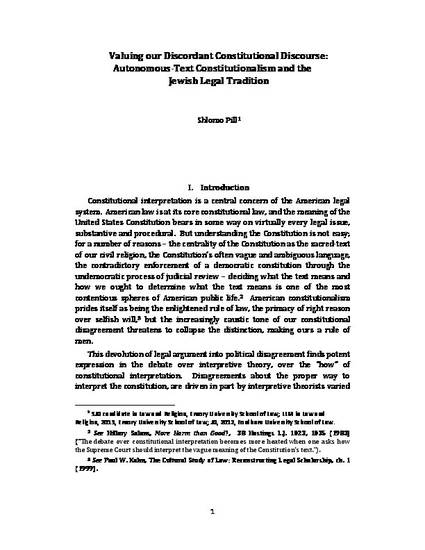
This paper considers the viability of autonomous-text constitutionalism, a constitutional interpretive and adjudicative theory based on Hans Georg-Gadamer’s philosophical hermeneutics. As the paper explains, this theory is premised on the subjectivity of all interpretive activity; it admits the legitimacy of a wide spectrum of reasonable interpretations of the Constitution, each given their unique character by the dialectical merging of experiential horizons between the fixed text and individual interpreter. This theory embraces a plurality of constitutional meanings in theory, limited by the need for unity in national spheres of constitutional practice. Such practical certainty is achieved by our empowering judicial institutions to decide what the Constitution requires in practice at any given time. In this sense, the courts are not decisors of constitutional truth, but arbiters of which one of many legitimate understandings of what the Constitution requires should control in practice. The paper supports the viability of this theory by invoking the example of Jewish law, which embraces a very similar jurisprudential approach to the interpretation and implementation of its own religious laws, and which has managed thereby to strike a workable balance between traditional continuity and incremental legal evolution over the course of two thousand years.
Available at: http://works.bepress.com/shlomo_pill/1/